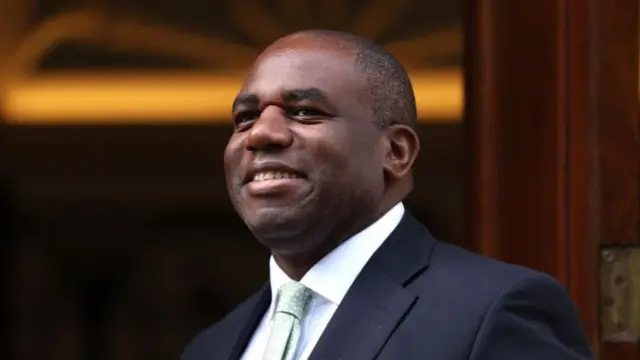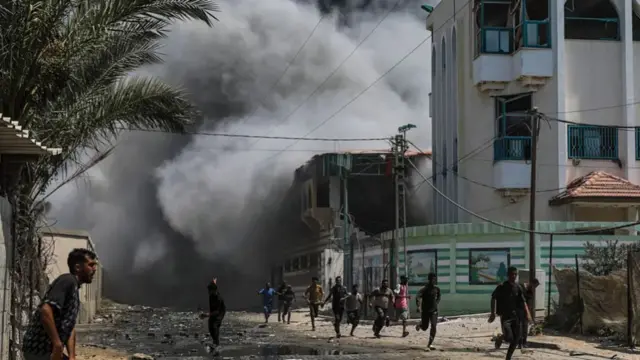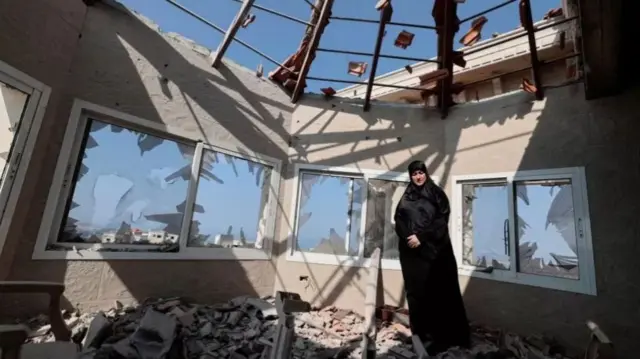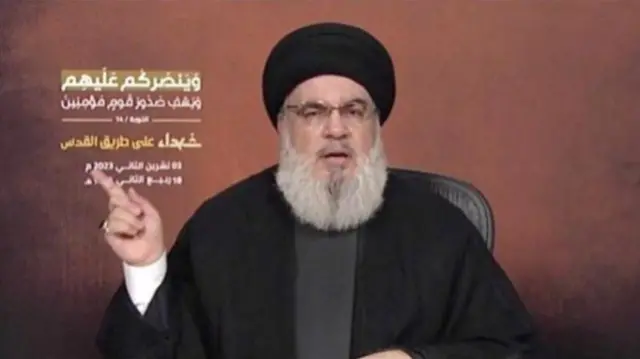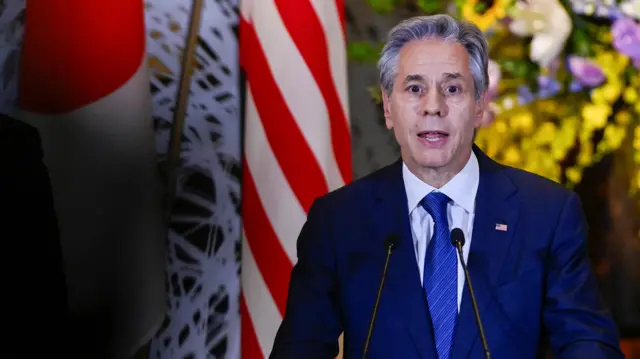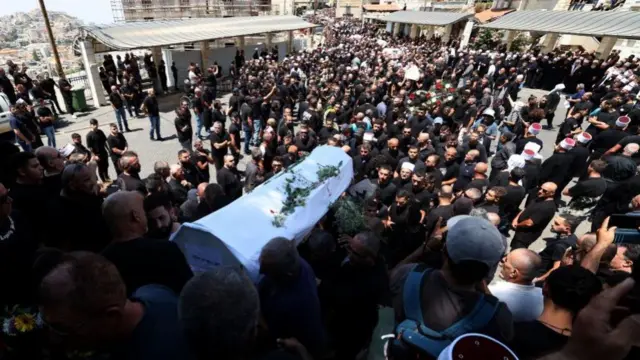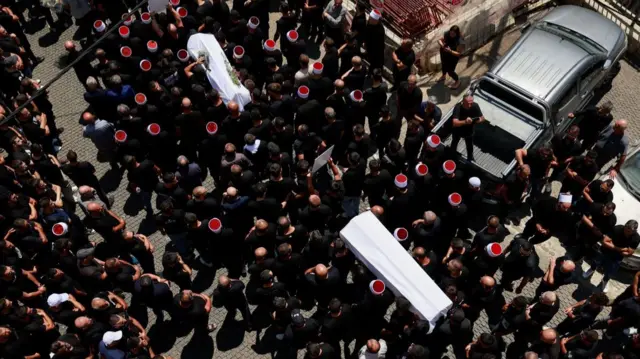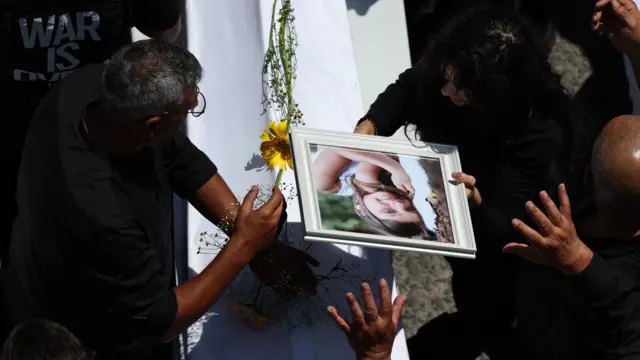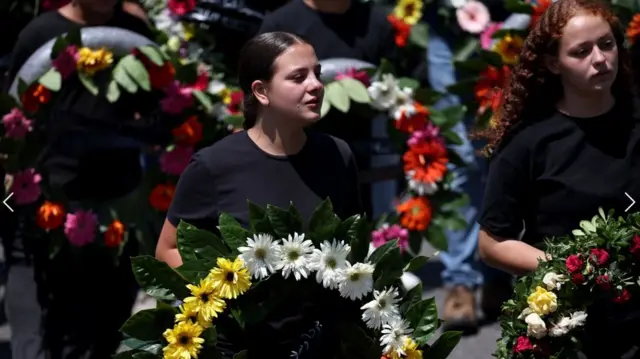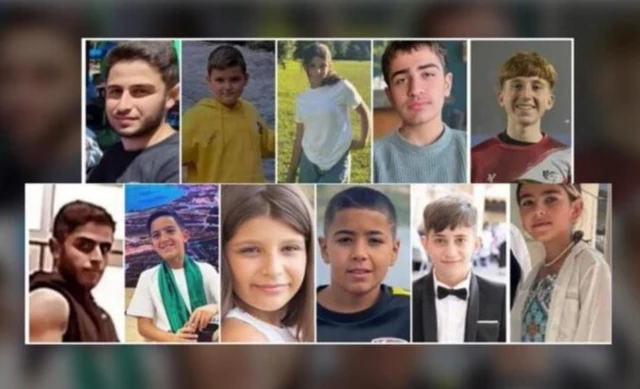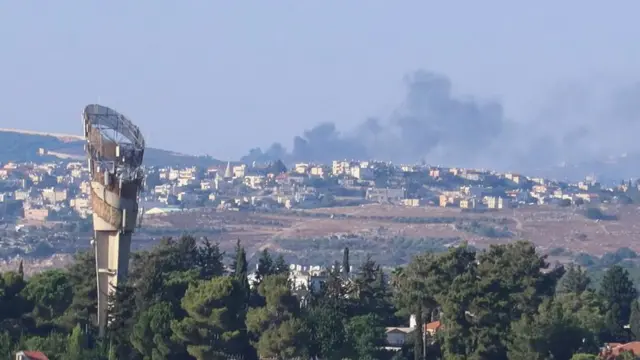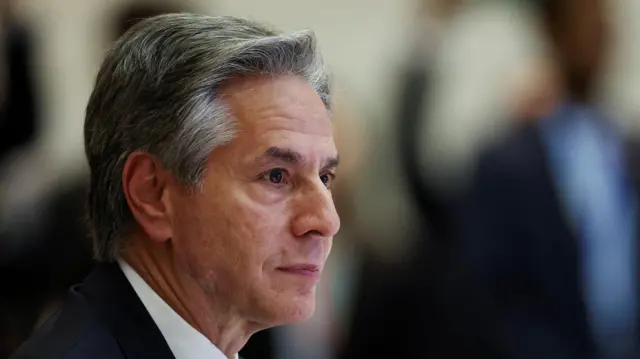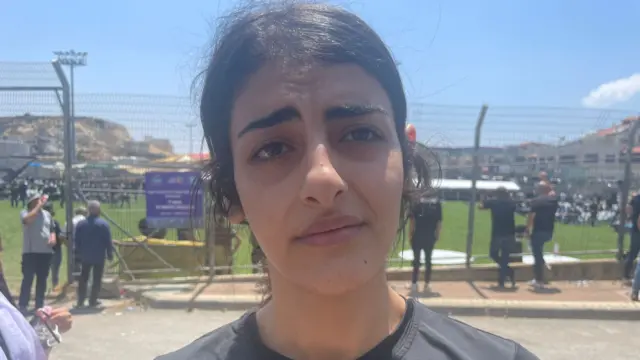Watch: Thousands gather in Majdal Shams for funerals of rocket strike victimspublished at 16:03 BST 28 July 2024
Members of the Druze community wept as they carried caskets through the streets of Majdal Shams
Thousands of people gathered on Sunday for the funerals of children and young people killed in a rocket strike in the Israeli-occupied Golan Heights.
You can watch moments from the processions in the video above.
